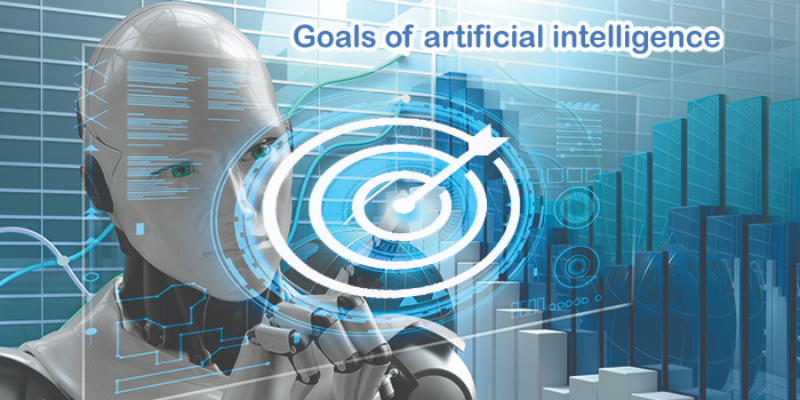Artificial intelligence (AI) is no longer limited to science fiction. It has become a reality that is increasingly shaping our world. AI is transforming every aspect of our lives, from self-driving cars to virtual personal assistants. However, as AI continues to evolve, the question arises: What are the main goals of AI? In this blog, we will explore the key objectives of AI and how they are being pursued. For those interested in delving deeper into this field, pursuing an Artificial Intelligence Course in Chennai at FITA Academy can provide invaluable insights and skills for navigating the rapidly expanding landscape of AI technologies.
Main Goals of Artificial Intelligence
Automation
One of AI’s primary goals is automation. By automating routine and repetitive tasks, AI frees human resources to focus on more complex and creative endeavours. For example, in the manufacturing industry, robots can take over physically dangerous tasks or require high precision. Similarly, chatbots and virtual assistants can handle customer queries and requests in the service industry, leaving human employees to focus on more personalized interactions.
Enhancing efficiency
Improving decision-making
AI can also improve decision-making by providing businesses and individuals with insights that would not be possible with traditional methods. For example, AI can analyze market data and predict future trends in the financial industry, helping investors make more informed decisions. Similarly, AI can analyze case law and precedents in the legal industry to provide lawyers with insights that can inform their arguments. Additionally, an Artificial Intelligence Online Course can equip individuals with the necessary skills to effectively leverage AI technologies in various fields.
Personalization
Personalization is another key goal of AI, transforming the way businesses interact with consumers. By analyzing individual data, AI can provide highly tailored user recommendations and experiences, enhancing customer satisfaction and engagement.
For example, in the retail industry, AI-driven recommendation engines analyze a customer’s purchase history, browsing behavior, and preferences to suggest products most likely to interest them. This not only boosts sales but also improves the shopping experience. Similarly, in the entertainment industry, AI-powered platforms like Netflix, Spotify, and YouTube leverage machine learning algorithms to analyze viewing and listening habits, offering curated recommendations for movies, TV shows, and music based on user behavior.
Advancing Scientific Research
AI also plays a crucial role in accelerating scientific research by helping researchers analyze vast amounts of data, identify patterns, and make groundbreaking discoveries. The ability of AI to process complex datasets quickly and efficiently is revolutionizing various scientific fields.
For instance, in genomics and medicine, AI can analyze genomic data to identify potential disease treatments, aiding in drug discovery and precision medicine. Machine learning models can detect patterns in genetic mutations and help predict diseases before symptoms appear, allowing for early intervention. AI is also instrumental in climate research, where it helps analyze satellite images, weather patterns, and environmental data to predict climate change effects and devise strategies to mitigate risks.
Furthermore, AI is revolutionizing materials science by assisting scientists in discovering new materials with desired properties, speeding up innovation in sectors like electronics, renewable energy, and manufacturing. AI-driven simulations allow researchers to model and test new materials in a virtual environment before physical production, significantly reducing costs and development time.
The main goals of artificial intelligence are automation, efficiency, decision-making, personalization, and advancing scientific research. While AI has enormous potential to transform our world for the better, it is important to keep in mind that these goals should be pursued in a way that is ethical, transparent, and respects human values. Ultimately, AI should enhance human capabilities, not replace them. Enrolling in a Training Institute in Chennai can provide valuable insights and guidance for individuals seeking to delve deeper into the field and understand its ethical implications.
Also Read: Some Facts About Artificial Intelligence
